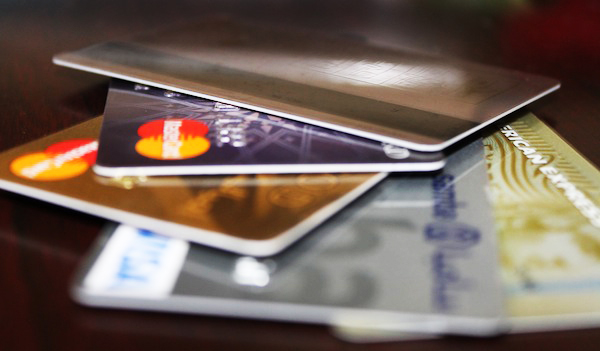Credit Cards & Loans
One thing everyone should do before applying for credit

Looking at your eligibility report or score is an important first step before deciding what credit product to apply for. Here’s why.
Applying for credit can be a minefield. Understanding what forms of credit suit your needs, and what forms you are likely to be eligible for, are complicated questions.
But in the last few years applying for credit has become simpler, and importantly, much fairer. Most lenders let people see what credit cards they are likely to be accepted for through a tool known as a ‘soft search’. These soft searches give a good indication as to whether you’re likely to get accepted for a particular product, based on an initial, light-touch search of your credit file and the results.
This is fairer because without soft searches, people risk applying for credit products that are out of their reach based on their credit score not matching up to the lender’s criteria. Being declined credit can have a detrimental impact on your chances of accessing credit in the future.
Soft searches have been on the market for several years, and go a step towards helping the industry. They’ve grown in popularity largely because the personal finance industry as a whole has been under pressure from consumers and regulators alike to be more transparent, fair and simple. We’ve seen it in the price comparison website boom. Also through the rise of many challenger banks and brands. And now we’re starting to see it in the credit industry.
But eligibility checking is different. It’s another step further. In order for the credit market to be completely transparent, people need to fully understand what credit they are eligible for. And what they can do to improve their chances of being eligible for some of the best credit cards on the market that we see advertised all of the time.
Looking at your eligibility report or score is an important first step before deciding what credit product to apply for because it gives you a full picture of what you can, and can’t, get access to. To give you a better idea of this, eligibility reports can be found on credit comparison sites, such as TotallyMoney.com, or on bank websites too.
While soft searches and eligibility checkers can’t always tell you whether you’re 100% likely to be accepted, it’s helpful to use their algorithms as a good guide. If you’re 90% likely to be accepted for a card for a 17.5% APR, but you’re 80% likely to be accepted for card offering 0% APR on purchases for 18 months then it’s worth considering both cards. A user may decide to take a chance and apply for the card with the lower eligibility score if the benefits of the card outweigh the potential risk of rejection.
Top tips to improve your eligibility
- Lenders are attracted to stability and there are a number of ways you can demonstrate this. First, make sure you get a landline. Using a landline on your credit applications shows you are rooted at one address and can help with security checks. Register to vote too. Lenders use the electoral roll to check your home address so being on it makes you far more likely to get credit. You can register or change your details if you’re already registered at About My Vote.
- Unsurprisingly, late or missed payments will damage your credit rating – lenders want to be sure they will get their money back. So make sure you pay everything on time. And avoid any risk of accidental mistakes by setting up direct debits. Companies that report missed or late payments to the credit rating agencies include: banks, water companies, energy providers, telecoms companies, mobile phone companies, county courts and letting agents and landlords
- Lenders like to see that you can use credit responsibly. This means they want to see evidence of you using credit regularly and sensibly, always making at least the minimum repayment every month on any credit cards you have.
- But if you’ve got old credit cards you don’t use, or high credit limits you don’t reach, getting rid of them will boost your credit rating. Lenders won’t want to lend to you if you already have credit you aren’t using.
- However, don’t cut everything back to the bare bones. If cancelling all your credit would leave you very close to your limits, you may appear desperate for more credit and close to losing control of your debt. Experts recommend never using more than 80% of the credit available to you.
Alastair Douglas is CEO of credit card and loan comparison site TotallyMoney.com